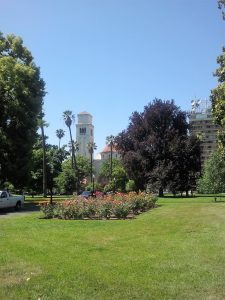 Genesis 50:15-21
Genesis 50:15-21
You intended to harm me, but God intended it for good to accomplish what is now being done, the saving of many lives (Genesis 50:20 NIV).
We come to the climax of our study about God’s providence in the life of Joseph son of Jacob. Through many twists and turns, God planned the events of Joseph’s life for the Lord’s goals in the great story of his glory in Jesus Christ. It is this section that provides God’s viewpoint on all that has happened.
We should approach this with more than a casual interest. It is one thing to say that God intended good in the events of Joseph’s life. It is quite another to make that same affirmation about our own lives. The way to begin is not to hope for or to wait for some crisis in our lives, and then to hope that we will see that God is working for our good. Instead, we must see God involved in our lives today, and every day and night. Wise military commanders prepare their troops for battle before they ever enter into harm’s way. God’s instruction about his story prepares us to serve him in all circumstances of life.
The account begins with the brothers’ misinformed plan (50:15-18). People, especially men, have the tendency to approach problems as “the fixer”. We listen to someone’s difficult situation for a couple minutes, and then spout out solutions to fix the other person or their circumstances. We try this with ourselves constantly by seeking advice from supposed experts or reading self-help books or surfing the internet. This approach is a recipe for disaster, and it could have made things much worse between Joseph and his brothers. Let’s think through their proposed solution.
- It arose from uncertainty in their hearts: “what if.” They were trapped in guilt producing fear sequence. Guilt so awakens fear that a person will not feel secure. Cain became ruled by guilt and fear after he murdered his brother (Genesis 4:13-14). Joseph’s brothers lacked insight about Joseph’s character. Godly people are often misunderstood. The Lord Jesus was misunderstood by his family, Paul by the Corinthians, and David by his wife Michal.
- It showed a mixture of worldly-wisdom and spiritual wisdom. They hid behind their father’s coat tails. They told a doubtful scenario from our perspective, but it might have happened. Did Jacob know about the sin of the ten against Joseph? Did they mislead Joseph that Jacob did? Would Jacob doubt Joseph’s intentions? The brothers took advantage of the grieving process, when a tender heart would be even more sensitive to an appeal like this. They did ask for forgiveness. Perhaps they should have used a better approach, but they did attempt to correct their problem.
- It was presented in an inexact way. We have the advantage of possessing the Scriptures, and so we should do better. They spoke through a messenger instead of personally. Fear, rather than love was controlling their hearts. The brothers appealed to Joseph with a legal attitude: “we are your slaves.” Compare the lost son in the parable (Luke 15). They wouldn’t claim the relationship that was theirs. How do you approach God after you have sinned? Do you attempt to pay your way back into his favor, or do you ask for cleansing because of Christ’s atonement? Christians don’t make light of their sin, but they exalt the preciousness of the blood of Christ. The brothers’ plan to fix their relationship caused Joseph more hurt. While he could be glad about their repentance, their distrust of him after years of kindness would hurt (50:17).
Are you in need of restoring a relationship with someone? Are you tempted to follow worldly wisdom to find a fix to the situation? Make a fresh start by seeking the Lord in prayer. Call upon him in your trouble. He can act in the hearts of all involved (you and the other person or people). Humble yourself in prayer, asking him to act by his powerful grace and love.
Grace and peace, David

 Genesis 48:8-22
Genesis 48:8-22 Genesis 48:8-22
Genesis 48:8-22 Genesis 48:1-7
Genesis 48:1-7 Genesis 48:1-7
Genesis 48:1-7
 Genesis 46:28-30
Genesis 46:28-30 Genesis 46:1-7
Genesis 46:1-7 Genesis 46:1-7
Genesis 46:1-7 Genesis 45:4-15
Genesis 45:4-15